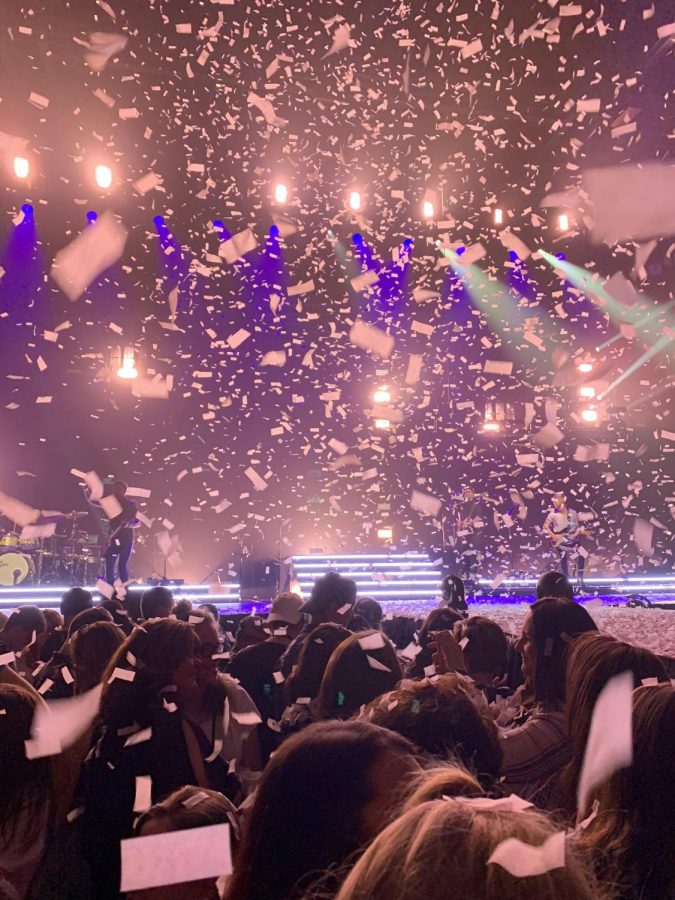Musicians remain optimistic despite pandemic threatening return of live events
February 23, 2021
According to Nielsen, about 32 million people attend at least one concert every year in the United States, and now that number is almost non-existent. There is, however, hope for a recovery of live events in the near future.
“I’m optimistic that by early fall, live events will be back,” said Evan Bailey, media and journalism professor and music industry marketing strategist. “If you’re in Texas or Florida right now, there are clubs doing shows. It may be at reduced capacity, but if you walked in there, you wouldn’t think there was an ongoing pandemic.”
Live events have gone on since the start of the pandemic, but they are few and far between. Drive-in concerts popped up all over the world in an attempt to get the live events industry somewhat back to normal.
“One of the things about live music is that the margins are thin, so it makes it tricky when you have a small venue with 1,200 people,” Bailey said. “With social distancing that number could be down to 400 people, and the economics of those spaces doesn’t really work.”
It costs a lot of money to book events, promote the show and pay employees and crew. These costs make it challenging to do smaller events because there would not be much profit. Many people in the music industry are trying to figure out what their best options are for events post-pandemic.
“Most of the revenue from live events comes from ticketing and if you don’t have events, or greatly reduced events, you don’t have revenue,” Bailey said. “It’s been devastating to the industry.”
It’s not just well-known artists who are struggling. Junior advertising student Greg Stropki, better known in the rap community as Greggy Westside, has had to put his music aside during the pandemic.
“I haven’t been able to get into the studio much, and when I am able to, my producers aren’t because they are preoccupied with school or work since they have had to take on more hours to make up for losses in the music world,” Stropki said.
He started working in the live events industry in 2016. He has managed artists, booked shows and wrote and recorded his own music. The COVID-19 pandemic has forced him to stop performing, but he is optimistic that he will perform again one day.
“I haven’t performed since 2019, but I released two projects on my own,” Stropki said. “Normally, I would book a few shows off of those projects and spread the music to more people. I know it would be irresponsible of me to put on shows now, so I will wait until it is safe for us all to be out and celebrating live music together to do shows.”
One way to ensure safety at live events after the pandemic is proof of vaccination or recent negative test. Live Nation has looked at multiple tech options for a type of digital health pass, but it doesn’t have a decision yet.
While some may feel safer knowing that the audience has been vaccinated or tested, others may think it is an infringement on their freedoms.
“I think there are people who will feel safe if they do that and I think there will be people who say that it is invasive,” Bailey said. “I think people feel different outside than they do indoors, so I think there is a distinction between those two events. The thing is, people miss human interaction. They miss hearing their favorite songs live, so I’m optimistic that we will be able to enjoy live music again soon.”
Lindsey Vlasic covers entertainment and the arts. Contact her at [email protected].












